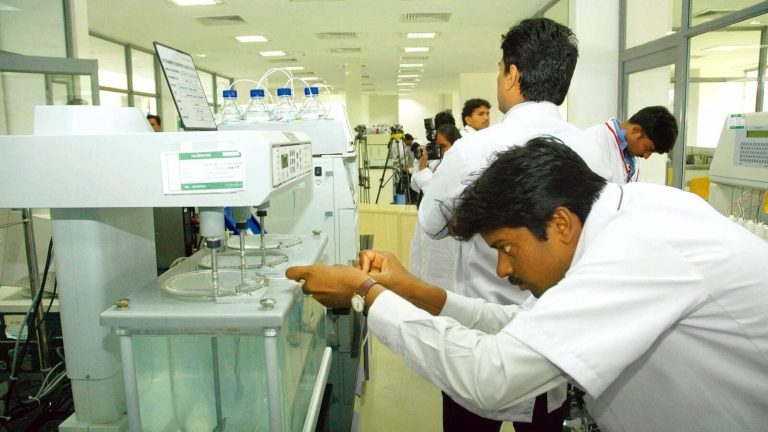Uncertainties over US tariffs and the end of the limited competition period for generic Revlimid in the US loom in the months ahead. However, analysts anticipate higher sales of Revlimid to drive growth for US-focused companies such as Aurobindo Pharma Ltd, Dr Reddy’s Laboratories Ltd and Sun Pharmaceutical Industries Ltd in Q4 and the first few quarters of the next fiscal.
“We expect a fine 4QFY25 for our pharma coverage, led by continued stability in US generics pricing, along with traction across most other markets, with sluggish domestic growth in January and February being the key chagrin,” analysts at Kotak Institutional Equities said in a note. They expect year-on-year sales growth at about 11% and Ebitda growth at about 17%.
JM Financial has similar estimates.
“They will deliver 10-11% top-line growth… generally, the fourth quarter is a softer quarter for some of the pharma companies with India exposure, especially in the acute [segment],” Amey Chalke, pharma research analyst at JM Financial, told Mint. “Companies with strong US exposure typically tend to do well during the fourth quarter.”
Revlimid, US generics growth
Companies including Dr. Reddy’s, Cipla, Sun Pharma, Zydus Lifesciences, Natco Pharma and Aurobindo Pharma have cashed in on generic versions of the $8 billion blood cancer drug Revlimid, distributed in restricted quantities in the US since March 2022. The companies are set to lose exclusivity on distribution of the drug in January 2026. Analysts anticipate Revlimid will push growth for Q4 of FY25 and the next few quarters.
“A lot of these companies which are reporting good numbers in the US, particularly, are benefiting from Revlimid. So, although Revlimid was also there in last year’s quarter, this year’s quarter we expect higher sales than last year,” Chalke said.
However, price erosion and quarterly volatility are expected.
“We expect a rise in quarterly volatility for gRevlimid revenues… We expect some price erosion, as most companies intend to sell allotted volumes for the year before September 2025,” Nomura analysts said in a note.
Revlimid sales might rise sequentially for Zydus and Sun Pharma but might decline for Dr Reddy’s, the analysts noted. Nomura analysts peg sales growth at 13% for Q4.
Analysts will also watch for product launches that companies have lined up in FY26 to make up for the loss of revenue from the loss of Revlimid exclusivity. It is estimated that most companies will see some correction in their profitability after the exclusivity period.
Apart from Revlimid, overall US generic drugs have driven growth for companies.
“We note exports to the US increased significantly q-q for Zydus, Sun Pharma, Lupin, and Cipla in 4QFY25F, and reduced for Dr Reddy’s,” the Nomura analysts said. “Excluding gRevlimid, we believe q-q US sales rose for Zydus (Sitagliptin) and Lupin (Mirabegron, PredForte, gXarelto) on other product specific opportunities in 4QFY25F.”
While pharmaceuticals are currently exempted from reciprocal tariffs by the US, President Donald Trump has indicated several times that a “major” tariff on pharma imports will be imposed, sparking concerns for Indian exporters. This quarter, any comments on steps being taken by companies to mitigate the hit from potential tariffs would be key to monitor, analysts at Kotak Institutional Equities said.
Softer domestic quarter
Domestic growth in the fourth quarter is typically weak, especially for drugmakers that are stronger in the acute therapy segment to treat short-term, severe conditions such as respiratory ailments, cough and cold. Growth of respiratory and anti-infective drugs are expected to have slowed, while cardiac and gastro drugs have likely outperformed, the Nomura analysts said.
While organic domestic growth may be slower, overall domestic growth for companies is expected to benefit from acquisitions and in-licensing deals. Analysts at Kotak anticipate domestic sales growth for its coverage companies in the range of 7% to 18% year-on-year.
“Within our coverage, 4QFY25 domestic sales for companies such as Cipla, Dr Reddy’s, Emcure and JB Chemicals would benefit from in-licensing deals, executed over the past few quarters, despite a sluggish offtake in January and February,” the analysts noted, adding that Mankind and Emcure would demonstrate the highest growth within its coverage companies.


